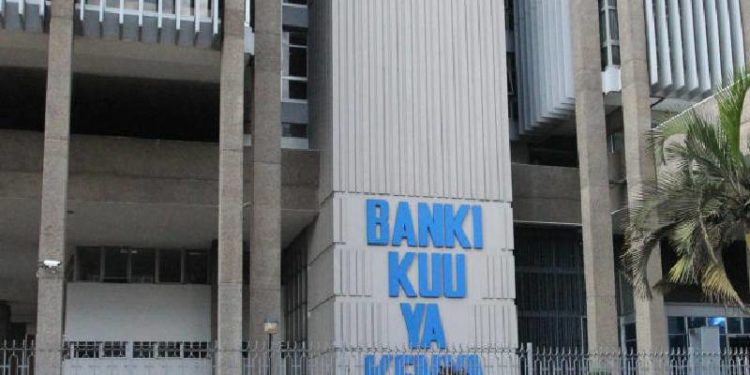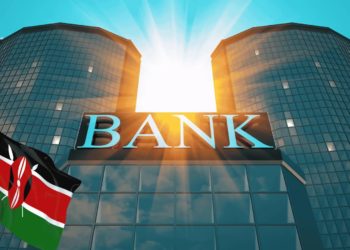The Central Bank of Kenya (CBK) Monetary Policy Committee has retained the base lending rate at seven percent for the 13th consecutive time.
The Committee noted that inflation expectations remain anchored within the target range supported by the Government’s policy interventions, and leading economic indicators show improved performance. The MPC also noted the elevated global risks and their potential impact on the domestic economy.
Overall inflation declined to 5.1 percent in February 2022 from 5.4 percent in January, mainly due to lower fuel and food prices. Fuel inflation declined to 6.5 percent in February from 8.2 percent in January, due to the effect of Government measures to stabilise fuel prices and lower electricity tariffs.
Read: Ecobank Slapped With Regulatory Action For Breaching Forex Rules
Food inflation declined to 8.7 percent in February from 8.9 percent in January. Inflation is expected to remain within the target range in the near term, due to muted demand pressures and the policy interventions. Nonetheless, the Committee noted increased risk of inflationary pressures arising from the global uncertainties.
The global economic outlook remains uncertain, reflecting the ongoing Russia-Ukraine conflict that started at the end of February, significant uncertainty about the policy responses in the advanced economies, and a spike in COVID-19 cases especially in China. Prices of commodities particularly oil, wheat, and fertiliser have risen sharply as a result of supply disruptions, adding to the already elevated global inflationary pressures. Financial market volatility has increased amid adjustments in monetary policy in advanced economies.
Leading indicators point to a strong performance of the Kenyan economy in the first quarter of 2022, supported by robust activity in construction, information and communication, wholesale and retail trade, transport and storage, and manufacturing sectors. The economy is expected to remain resilient supported by recovery in agriculture and continued strong performance of the services sector despite the downside risks to global growth in 2022.
Read: TechnoServe Strengthening African Processors Of Fortified Foods
The three surveys conducted ahead of the MPC meeting — Private Sector Market Perceptions Survey, CEOs Survey, and the Survey of Hotels — revealed continued optimism about business activity, employment, and economic growth prospects for 2022. The optimism is attributed to reduced COVID-19 infection rates, anticipated favourable weather conditions, and increased infrastructure spending. Nevertheless, respondents were concerned about the impact of the Russia-Ukraine conflict on commodity prices and supply chains, in addition to the increased political activity. The Survey of Hotels revealed continued recovery in the sector, with a majority expecting a return to pre-pandemic level of operations by the end of 2022.
Exports of goods have remained strong, growing by 12.1 percent in the 12 months to February 2022 compared to a similar period in 2021. In particular, receipts from horticulture and manufactured goods exports increased by 7.9 percent and 31.3 percent respectively over the period. Receipts from tea exports declined by 0.3 percent in the 12 months to February 2022 compared to a similar period in 2021 due to the impact of accelerated purchases in 2020.
Tea exports grew by 12.3 percent in the three months to February 2022 due to improved demand from traditional markets. Imports of goods increased by 27.8 percent in the 12 months to February 2022 compared to a decline of 12.3 percent in the 12 months to February 2021, reflecting increased imports of oil and intermediate goods. Tourism and transportation receipts have increased as international travel continues to improve.
Read: KEPHIS Boosts Avocado Growers Eyeing The Chinese Market
Remittances totalled USD3,840 million in the 12 months to February 2022, and were 21.7 percent higher compared to a similar period in 2021. While the current account deficit is estimated at 5.6 percent of GDP in the 12 months to February 2022, it is projected at 5.9 percent of GDP in 2022 on account of higher international oil prices.
The CBK foreign exchange reserves, which currently stand at USD7,850 million (4.80 months of import cover), continue to provide adequate cover and a buffer against any short-term shocks in the foreign exchange market.
The banking sector remains stable and resilient, with strong liquidity and capital adequacy ratios. The ratio of gross non-performing loans (NPLs) to gross loans stood at 14.0 percent in February 2022, compared to 13.1 percent in December 2021. NPLs increases were noted in the manufacturing, tourism, restaurant and hotels, building and construction and real estate sectors. These increases were attributable to specific challenges in the respective businesses, and banks have continued to make provisions for the NPLs.
Read: Britania Biscuit Makers Accused Of Cooking Books In Ksh1.2 Billion Buyout
Growth in private sector credit increased to 9.1 percent in February 2022, from 8.6 percent in December 2021. Strong credit growth was observed in the following sectors: transport and communication (24.1 percent), manufacturing (7.6 percent), trade (8.9 percent), consumer durables (14.0 percent), and business services (11.6 percent). The number of loan applications and approvals remained strong, reflecting improved demand with increased economic activities.
The Committee noted the steady implementation of the FY2021/22 Government Budget, particularly the strong revenue performance to February 2022 reflecting enhanced tax collection efforts and increased economic activity following the easing of COVID-19 containment measures. The continued execution of the Economic Stimulus Programme and the Economic Recovery Strategy were also noted, which are expected to support the economy and cushion the most vulnerable.
Read: CBK Regulations Spell Doom For Digital Lenders















